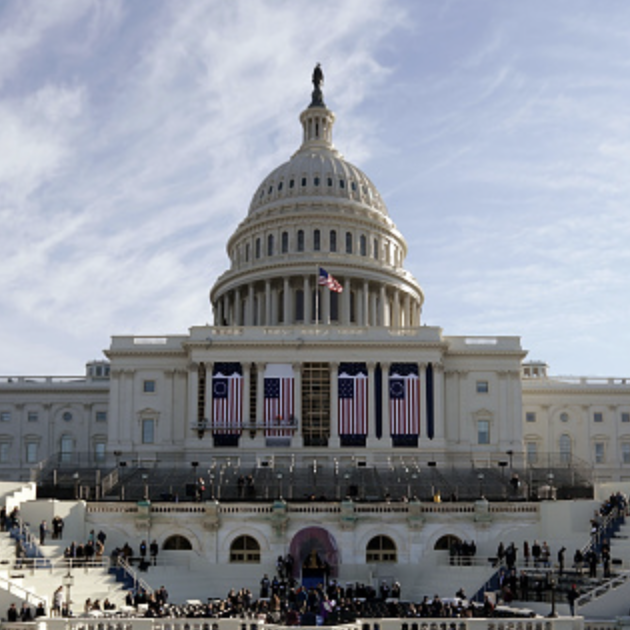American budget: The Donald Trump edition
🔗 [SYSTEM UPDATE] Link found. Timestamp incremented on 2025-11-26 13:55:13. There has never been a better or more interesting time to get up to date with the complexities of the US budget. OWEN HUCK reports in the What The F*ck is Politics series.

http://gty.im/643820038
Donald Trump meets with financial advisers on the road to getting his budget sorted.
By OWEN HUCK
Like the global financial crisis, the US economy can have serious ramifications worldwide. With US President Donald Trump facing fierce Tea Party Republicans in the House and filibustering Democrats in the Senate, there has never been a better or more interesting time to get up to date with the complexities of the US budget.
What's in this year’s budget?
Unsurprisingly, Mr Trump's budget is controversial. Almost every federal department faces cuts except for Defence, Homeland Security, and Veteran's Affairs. They could see gains of around $54 billion in total.
The Environmental Protection Agency faces a $2.5 billion budget cut, the State Department will be slashed by $10.9 billion and there will be major reductions to foreign aid and contributions to the World Bank.
But how does the American budget actually work?
The budget may only loosely resemble what gets passed into law.
The President must submit his budget proposal to Congress. Congress will then write its own version of the Budget and send it to the President to sign into law. This process must be completed by the start of the US fiscal year, October 1.
It is common practice for politicians not to vote with their party's leader, so it is unclear who the Republicans will vote for at this point, let alone the Democrats.
http://gty.im/631756034
The United States Capitol, home of the United States Congress.
How does Congress feel about it?
Plenty of Republicans as well as Democrats are uneasy about the budget, with some like Republican Senator Lindsey Graham voicing concern.
“These increases in defence come at the expense of national security, soft power, and other priorities," Senator Graham said in a press release.
Not all Republicans are against Mr Trump's budget. The Freedom Caucus, a hard-line conservative group, responded more favourably:
https://twitter.com/freedomcaucus/status/842382994304299011
The Democrats are more unified than Republicans in their opposition to Mr Trump’s plan, as shown in Senate Minority Leader Chuck Schumer’s tweet:
https://twitter.com/SenSchumer/status/842363976176553985
What happens if the President and Congress can't agree on a budget?
If the budget isn't passed by the start of the US fiscal year, the government will go into “shutdown”, meaning all non-essential programs will be halted. This includes parks, museums, zoos and thousands of other government-run initiatives.
But don’t worry, they would never let that happen … Right?
http://gty.im/183953255
The third day of the US Government shutdown in 2013.
It turns out, US government shutdowns have occurred 18 times since 1976, most recently in 2013.
During the 2013 shutdown the Republican-controlled House and the Democrat-led Senate could not agree on a bill and as a result, 850,000 federal workers were put on mandatory leave, national parks closed and dozens of other services were suspended. The deadlock lasted for 15 days. Rating agency Standard & Poor's estimated the shutdown cost $24 billion.
Another shutdown is back on the agenda after Senator Schumer raised it as a possible bargaining chip. He said if the budget contained “poison pills” such as defunding reproductive health organisation Planned Parenthood or bankrolling Mr Trump’s border wall with Mexico, then the Democrats would block it in the Senate.
“If they put those poison pill amendments in and try to shove them down the American people’s throats, of course they might be responsible for shutting the government down,” Senator Schumer said in a press conference.

So is a shutdown on the horizon?
Expert in American federal politics at Australian National University, Dr John Hart said all bets are off.
"The Republican party in Congress is in such turmoil at the moment. Frankly anything could happen," Dr Hart said.
Many members of Congress have been conditional in their approval of Mr Trump’s budget, and it's still early days, which might be why Dr Hart is cautious about making a prediction. But he does think a shutdown is much more than an outside chance.
"I would be very, very surprised if it [the budget process] goes smoothly. I would be very, very surprised if the budget was passed before the next financial year, and I think it's got to be either a showdown or some temporary patch-up," Dr Hart said.





